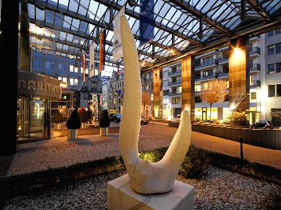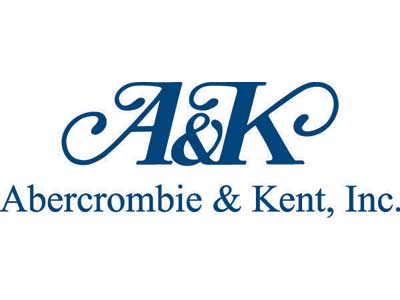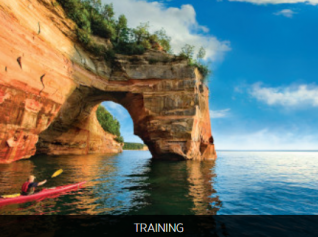Carbon management in tourism: reducing wastage from buffets involving social marketing Pro Arte Hotel Berlin

The sustainable breakfast buffet issue
The issue
Hotel restaurants prepare considerable amounts of food, which are often offered as buffets.
Observational evidence suggests that compared to table service, buffets might encourage customers to fill plates with greater quantities of food than are eaten, and to choose a greater proportion of energy-intense and thus more climatically problematic foods than are eaten at home, such as meats, milk products, or fruit juices. When customers have eaten, considerable amounts of food from the buffet itself might have to be discarded, in addition to leftovers on plates.
Even though not representative, chef Ingrid Fjellestad (Hotel Alexandra, Loen, Norway) estimates, for example, that 5–10 per cent of the food served on the hotel’s buffets is thrown away.
The solution
Buffets could theoretically inspire customers to only eat the amount of food they wish to consume, and to make more ecological food choices. Ideally, more sustainable eating patterns ‘learned’ in restaurants could later on inform every- day food-related decision-making.
The Maritim pro Arte Hotel in Berlin supports customer choices in this direction. The hotel serves about 140,000 breakfast guests and another 300,000 lunch, dinner and banquet guests per year in its three restaurants.
The hotel has a strong focus on providing sustainable foods, and offers both a ‘conventional four-star’ breakfast buffet with about 100 food components, and an alternative organic breakfast buffet with 52 food components. By offering the two buffets side by side, the organic breakfast buffet, which can be identified by customers through signs with the German ‘BIO’ label for organic food, is implicitly marketed as a healthier and high-quality choice com- pared to the conventional buffet.
According to the hotel’s food and beverage manager, Marcell Kästner, guests show strong interest in the organic buffet, with 25–30 per cent of overall food purchases of the hotel now being organic. The Maritim pro Arte restaurants also offer organic menus, starters and main courses for lunch and dinner guests. There are seven organic wines on the wine list, and the hotel offers other organic beverages as well as an organic coffee list.
While organic food is not necessarily more climate friendly, there is consensus that it offers a wide range of other sustainability benefits. More important from a climate mitigation perspective, Maritim pro Arte uses seasonal foods only in season, with for instance asparagus or strawberries only being served from late April to the end of June, even though they could easily be imported at any time of the year. This would entail higher emissions for transport, however.
The Maritim pro Arte also seeks to reduce wastage from buffets by providing com- parably small plates with a diameter of 26 cm. Deep dishes on the buffet have a diameter of only 18–26cm, and are filled with a maximum of 10 portions. This helps to avoid the ‘overloading’ of plates with food that diners do not actually eat.
Moreover, carbon-intense foods such as meats are displayed on the periphery of the buffet table, while low-carbon foods are placed at the centre. All items of food are provided in small portions, again with the intention to avoid wastage. Taken together, such measures can be significant in influencing consumer choices and have a particular relevance in reducing waste.
Customers perceive these efforts in a very positive light: Marcell Kästner reports that the most negative comment ever encountered in discussions with banquet customers, i.e. when Maritim pro Arte functions as a caterer, is that they ‘do not care’. Most customers perceive the organic component as a significant add-on. Consequently, more sustainable food provisions can be seen to create tangible benefits for customers, such as perceived healthiness and higher food quality.
The idea to engage in pro-environmental food management was born out of Marcell Kästner’s insight that business-as-usual operations should not be continued because of their negative environmental consequences, growing environmental awareness among customers, trends towards more healthy lifestyles and concomitant changes in consumer demand. However, a key obstacle was the high costs of organic food purchases, which are on average 10–15 per cent more expensive compared to conventional foods. These expenses could not be passed on to guests for fear of negative price increase perceptions.
As a result, profit margins declined when organic food purchases commenced. This was accepted, however, as the Maritim pro Arte expected to profit from the branding effect of organic food offers. The fact that the hotel would be one of the first to engage in pro-environmental food management was even seen as a particular advantage, helping them to stand out against competitors. As Marcell Kästner outlines, there is massive competition in large cities and a need to be distinguishable from competitors. Organic foodstuffs however also opened up new opportunities from a gastronomic point of view, as retailers occasionally offer rare vegetable varieties.
Problems encountered in the implementation phase were the size of trading units of organic food, which are too small for large consumers such as the Maritim pro Arte, and the price difference for some foods, with for instance organic poultry being up to 300 per cent more expensive than conventional poultry. Other problems include temporary shortages of some foodstuffs, the fact that only few retailers can offer the full assortment of organic foods, and additional costs for being certified as ‘BIO’ (after the EU organic standard for foods). Being ‘BIO’ certified also entails additional demands on accounting, as organic purchases have to be documented. Implementation also required cooperation with certifier Agro-Öko-Consult Berlin GmbH. Total certification costs of €2,600 are reported by Marcell Kästner, including €600 for certification and €2,000 for 70 hours of working time by various members of staff. An annual control costs €400, which is required to remain certified.
In order to even out additional costs, Maritim pro Arte developed a number of strategies. First of all, a decision was made to subsequently introduce organic foodstuffs, and to increase their share continuously to avoid sudden increases in overall costs. Moreover, meals were designed to primarily use moderately more expensive organic foodstuffs, and to steer customers towards choices with higher profit margins. For instance, comparably expensive poultry is predomi- nantly used to complement comparably cheap salads, with the result that a reasonable profit margin can be maintained. Such strategic planning could help to use considerably greater amounts of organic food in the future, with only moderate increases in costs, and wide-reaching advantages in marketing and climate change mitigation.
Impact
Hotel Maritim pro Arte has shown that it is possible to serve more sustainable and climatically unproblematic food at moderate cost increases, particularly if organic food is served with a strategy to address costs of cheap/expensive food components in meals. Importantly, serving organic food is perceived favourably by customers and reinforces brand image and customer loyalty.
The above was excerpted from ‘Carbon Management in Tourism’ by Professor Stefan Gossling due to be published by Routledge on 9 December
www.routledge.com/books/details/9780415566339/
Valere Tjolle is editor of the Sustainable Tourism Report Suite – latest information: www.travelmole.com/stories/1145453.php latest offer: www.travelmole.com/stories/1145345.php
 United Kingdom
United Kingdom United States
United States Asia Pacific
Asia Pacific












































EU airports bring back 100ml liquid rule
British Airways passengers endure 11-hour 'flight to nowhere'
CLIA: Anti-cruise demos could cause itinerary changes in Europe
Co-pilot faints, easyJet flight issues ‘red alert’
Gatwick braces for strike